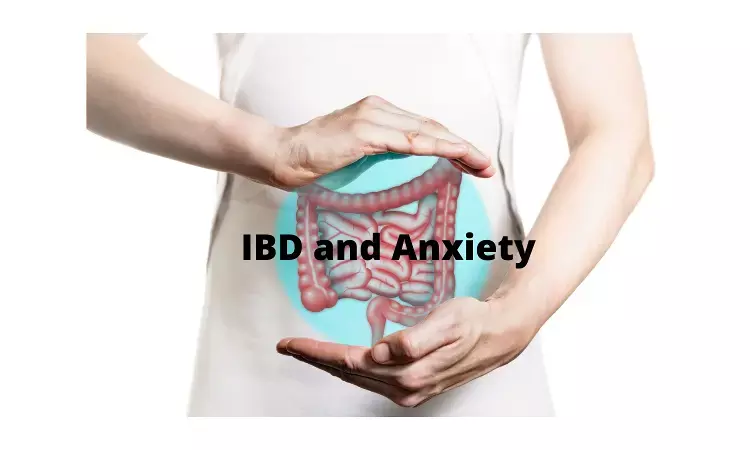- Home
- Medical news & Guidelines
- Anesthesiology
- Cardiology and CTVS
- Critical Care
- Dentistry
- Dermatology
- Diabetes and Endocrinology
- ENT
- Gastroenterology
- Medicine
- Nephrology
- Neurology
- Obstretics-Gynaecology
- Oncology
- Ophthalmology
- Orthopaedics
- Pediatrics-Neonatology
- Psychiatry
- Pulmonology
- Radiology
- Surgery
- Urology
- Laboratory Medicine
- Diet
- Nursing
- Paramedical
- Physiotherapy
- Health news
- Fact Check
- Bone Health Fact Check
- Brain Health Fact Check
- Cancer Related Fact Check
- Child Care Fact Check
- Dental and oral health fact check
- Diabetes and metabolic health fact check
- Diet and Nutrition Fact Check
- Eye and ENT Care Fact Check
- Fitness fact check
- Gut health fact check
- Heart health fact check
- Kidney health fact check
- Medical education fact check
- Men's health fact check
- Respiratory fact check
- Skin and hair care fact check
- Vaccine and Immunization fact check
- Women's health fact check
- AYUSH
- State News
- Andaman and Nicobar Islands
- Andhra Pradesh
- Arunachal Pradesh
- Assam
- Bihar
- Chandigarh
- Chattisgarh
- Dadra and Nagar Haveli
- Daman and Diu
- Delhi
- Goa
- Gujarat
- Haryana
- Himachal Pradesh
- Jammu & Kashmir
- Jharkhand
- Karnataka
- Kerala
- Ladakh
- Lakshadweep
- Madhya Pradesh
- Maharashtra
- Manipur
- Meghalaya
- Mizoram
- Nagaland
- Odisha
- Puducherry
- Punjab
- Rajasthan
- Sikkim
- Tamil Nadu
- Telangana
- Tripura
- Uttar Pradesh
- Uttrakhand
- West Bengal
- Medical Education
- Industry
IBD patients in remission may have Mental health issues, low productivity at work

Inflammatory bowel disease (IBD) is a term for two conditions (Crohn's disease and ulcerative colitis) that are characterized by chronic inflammation of the gastrointestinal (GI) tract. Chronic diseases, such as Inflammatory Bowel Disease, can lead to anxiety and depression which can have a significant impact on productivity at work (presenteeism).
A recent study in Journal of Crohn's and Colitis reveals there was a significant percentage of IBD patients in remission suffering from anxiety or depression. Risk factors for these might be Chronic Diseases (CD), female gender, use of biological medications, long-standing and perianal disease, it was also associated with a sedentary lifestyle, lower presenteeism at work and unemployment.
The study was a multicentre study whereby adult IBD patients, in clinical remission, were asked to answer an anonymous questionnaire. Hospital Anxiety and Depression Score (HADS), Stanford Presenteeism Scale (SPS-6) and Godin exercise score were also collected. The study aimed to assess the prevalence of depression/anxiety, presenteeism and exercise levels amongst IBD patients.
The results of the study were
• A total of 585 patients were recruited. The majority had Crohn's disease (CD, 62.2%) and were male (53.0%), with a median age of 39 years (IQR 30-49).
• A psychiatric diagnosis was present in 10.8% of patients prior to their IBD diagnosis. A further 14.2% of patients were diagnosed post IBD diagnosis, this being commoner in CD patients (41.6% of CD, p<0.01).
• A raised HADS-anxiety or a HADS-depression score ≥8 was present in 46.1% of patients, with 27.4% having a score ≥11. Low presenteeism at work was present in 34.0%.
• Patients diagnosed with depression/anxiety had a more sedentary lifestyle (p<0.01), lower presenteeism at work (p<0.01) and a higher rate of unemployment (p<0.01).
Researchers concluded that "A significant percentage of IBD patients in remission suffer from anxiety and/or depression. Risk factors for these are CD, female gender, use of biological medications, long-standing and perianal disease. Depression/anxiety was associated with a sedentary lifestyle, lower presenteeism at work and unemployment. The use of validated screening tools and appropriate referrals to psychologists and/or psychiatrists should be employed within IBD clinics."
Reference: https://doi.org/10.1093/ecco-jcc/jjac037
Medical Dialogues consists of a team of passionate medical/scientific writers, led by doctors and healthcare researchers. Our team efforts to bring you updated and timely news about the important happenings of the medical and healthcare sector. Our editorial team can be reached at editorial@medicaldialogues.in.
Dr Kamal Kant Kohli-MBBS, DTCD- a chest specialist with more than 30 years of practice and a flair for writing clinical articles, Dr Kamal Kant Kohli joined Medical Dialogues as a Chief Editor of Medical News. Besides writing articles, as an editor, he proofreads and verifies all the medical content published on Medical Dialogues including those coming from journals, studies,medical conferences,guidelines etc. Email: drkohli@medicaldialogues.in. Contact no. 011-43720751


